New Scientist covers the latest developments in science and technology that will impact your world. New Scientist employs and commissions the best writers in their fields from all over the world. Our editorial team provide cutting-edge news, award-winning features and reports, written in concise and clear language that puts discoveries and advances in the context of everyday life today and in the future.
Elsewhere on New Scientist
Make do and mend • The fashion world must change its environmentally destructive ways
New Scientist
Nuclear waste in spotlight • Mini nuclear reactors may create more radioactive waste for a given amount of power than conventional reactors, reports Adam Vaughan
First genome of Pompeii resident • Human remains from towns destroyed by the eruption of Mount Vesuvius reveal the genetics of ancient Romans and the resilience of bone proteins, reports Colin Barras
Beware! Planet thieves are operating across the universe
Self-replicating artificial cells move a step nearer
3D-printed tourniquets could help save lives
‘Zombie’ pulsar is active member of star graveyard
Spaceport America, New Mexico • Boldly going where no one has gone before SpinLaunch has an audacious plan to launch satellites with a giant centrifuge, and it might change the future of space flight, reports Leah Crane
Artificial intelligence • Will text-to-speech AIs put illustrators out of a job? Google’s Imagen AI produces high-quality images from a text prompt, but is it ready to replace humans, asks Alex Wilkins
Immunotherapy for brain cancer can be made more effective
Dash of tomato colouring makes better solar panels
UK talent visa blocks graduates from African universities
Driverless cars could force other road users to drive more efficiently
NASA backs rainbow-coloured solar sail project
Maps show ecological toll of Japan’s switch to farming
Bricks of moon or Mars dust are sturdy enough for buildings
Gene therapy on the rise • Having fallen out of favour in the 2000s, gene therapy is now helping children who would otherwise have died at a young age, reports Alice Klein
Firearm suicides are increasing in the US, despite declining globally
Quantum computer does any calculation without errors
Romans may have set rare seals on the path to peril
Stellar puzzle settled by an unlikely source
Lifestyle can counter genetic dementia risk
Really brief
Graphene made from old bumpers
‘Teleportation’ achieved in miniature quantum network
Micro machine can climb through body
Lessons from space • There is much we can learn from space exploration to help secure a more sustainable food system on Earth, argues Angelo Vermeulen
My botanical life • Time to smell the roses While botanical gardens have evolved from their medicinal roots in 16th-century Italy, their plants can still bring peace and joy today, says Beronda L. Montgomery
In the details
Editor’s pick
Daleks, K9 and the TARDIS • A mind-expanding new exhibition in Liverpool, UK, sets out to explore how science has influenced the making of Doctor Who, discovers Clare Wilson
Rites of passage • From animal death rites to gang initiations, rituals are found everywhere. This riveting book explores why, finds Simon Ings
Don’t miss
On the right track • The physics in this meandering but compelling novel adds flavour rather than substance, with the focus more on mental health, finds Anna Demming
Meet the dinosaurs of south London
CAN FASHION REALLY GO GREEN? • Our love of cheap and cheerful clothes is hugely damaging to the environment. What does more sustainable fashion look like, and what will it take...
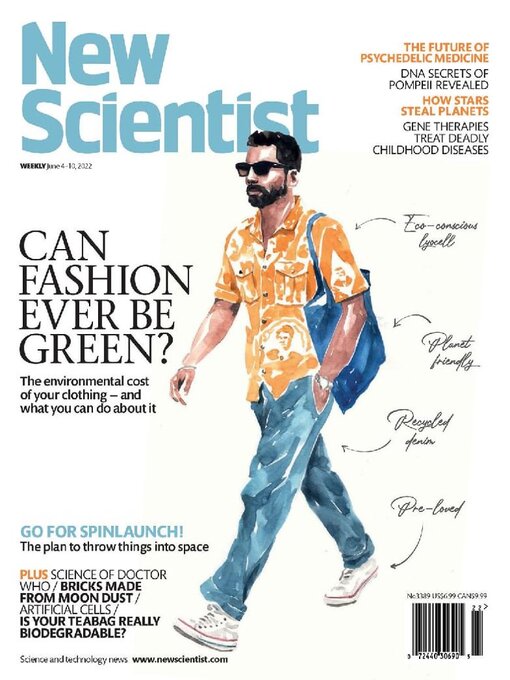
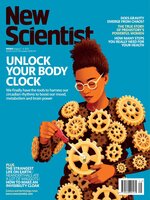 Aug 02 2025
Aug 02 2025
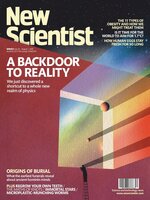 Jul 26 2025
Jul 26 2025
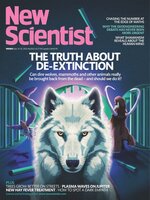 Jul 19 2025
Jul 19 2025
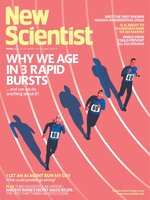 Jul 12 2025
Jul 12 2025
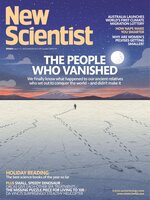 Jul 05 2025
Jul 05 2025
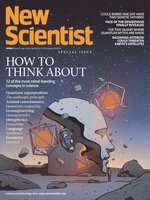 Jun 28 2025
Jun 28 2025
 Jun 21 2025
Jun 21 2025
 Jun 14 2025
Jun 14 2025
 Jun 07 2025
Jun 07 2025
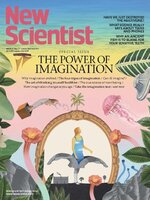 May 31 2025
May 31 2025
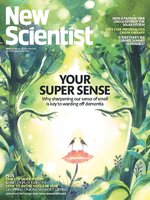 May 24 2025
May 24 2025
 May 17 2025
May 17 2025
 May 10 2025
May 10 2025
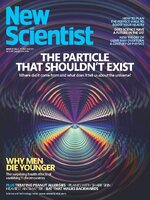 May 03 2025
May 03 2025
 Apr 26 2025
Apr 26 2025
 Apr 19 2025
Apr 19 2025
 Apr 12 2025
Apr 12 2025
 Apr 05 2025
Apr 05 2025
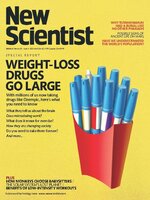 Mar 29 2025
Mar 29 2025
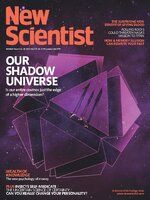 Mar 22 2025
Mar 22 2025
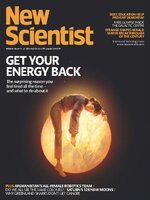 Mar 15 2025
Mar 15 2025
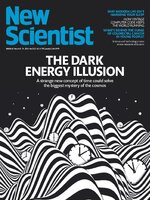 Mar 08 2025
Mar 08 2025
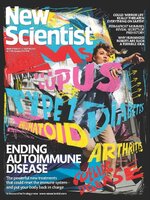 Mar 01 2025
Mar 01 2025
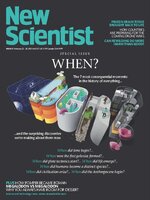 Feb 22 2025
Feb 22 2025